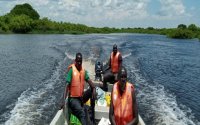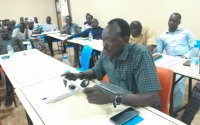Resilient Futures: Celebrating Our Achievements in Revitalizing Drought-Affected Livelihoods in Kapoeta East County
In his remarks during the celebration of the 50 graduates of Technical Vocational Education and Training (TVET) programs offered by ACROSS in tailoring in Narus, Commissioner Hon. Abdalla expressed his immense gratitude for the efforts of ACROSS.
He had this to say… “I appreciated ACROSS for the work well done, this has never been done by any partners in this County.”
He went on to say that ACROSS is the only partner that improves the lives of Kapoeta East residents more than any other partners in all categories, including TVET, nutrition, food security and livelihood, and peacebuilding. In order to provide for their families, he advised the graduates to put the knowledge they had learned from the tutor into practice. He urged every Kapoeta East community to engage with ACROSS to take advantage of all the projects that their donors were offering. He exhorted the residents of Kapoeta to cultivate their land and live in peace rather than focusing just on raising cattle and ignoring other sources of income that enhance people’s quality of life.
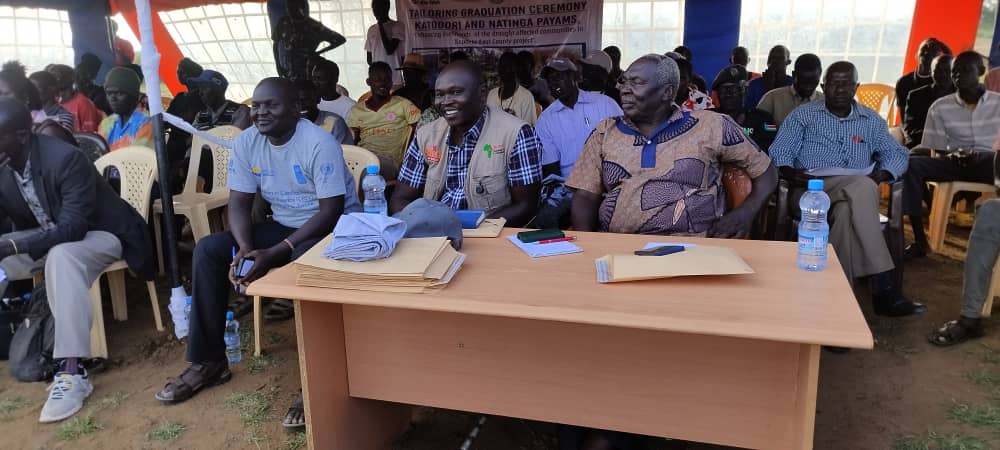
ACROSS has been concentrating on food security and livelihoods (including vocational training, provision of seeds and tools) in the Kapoeta East County for the past four years. Kapoeta East County is an administrative region of Eastern Equatoria state in South Sudan, bordered by Kenya to the south, Ethiopia to the east and Jonglei state to the west. It is part of the Greater Kapoeta region of the state with the Toposa people make up the largest ethnic group. The principal town is Narus.
The majority of the population of Kapoeta is pastoralists, with a big herd of cattle, sheep, and goats. During the rainy season, they graze their animals close to their settlements; when the rains stop, they relocate the animals to pastures during the dry season, and they gradually return to the community at the beginning of the following rainy season. The majority of the county experiences yearly average rainfall of less than 700 millimeters (28 in) due to its undulating plain terrain. There are patches of open grassland and prickly shrubs.
Chronic food insecurity, a lack of basic amenities (WASH, health, education, livelihoods services), and a lack of economic possibilities have all been present in Eastern Equatoria over time. Numerous young people in the state are involved in banditry, armed robberies, and livestock rustling as a result of poverty and the quest for economic dominance. The populace is nonetheless burdened by long-lasting cycles of retaliatory attacks over natural resources, especially land, and inadequate infrastructure because there is little to no government security presence in many parts of the state.
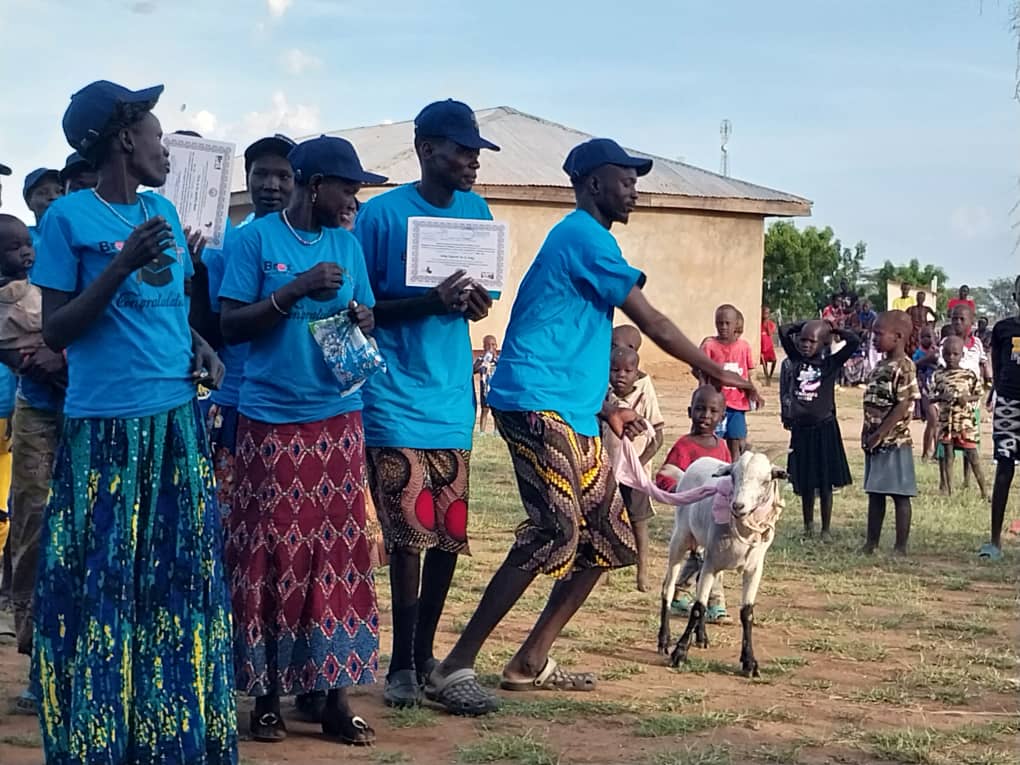
Due to the lack of an operational local administration, many counties further east—Kapoeta East County in particular—face increased levels of instability. The most prevalent types of insecurity include, among other things, gender-based violence, armed robberies, looting, and cattle raiding and rustling. The area also experiences food insecurity, which is mostly caused by protracted drought spells or insecurity linked to disputes between the Toposa and Buya ethnic groups.
Through its several initiatives, including livelihood services, food security, and WASH, ACROSS has made a substantial contribution to the economic empowerment of the people of Kapoeta East. One of ACROSS’s teammates, Mr. Levi Mogga Yona, the Head of Program, revealed that in addition to 50 graduates, ACROSS plans to expand its customized training initiative to other areas in Kapoeta East, specifically in Kauto and Lotimor Payams. He further emphasized that the graduands should properly maintain and take care of the tailoring machines that ACROSS provided them so that they can continue to profit from it, he advised the graduates to practice and put the knowledge they had received from the training to good use in order to enhance their livelihoods.
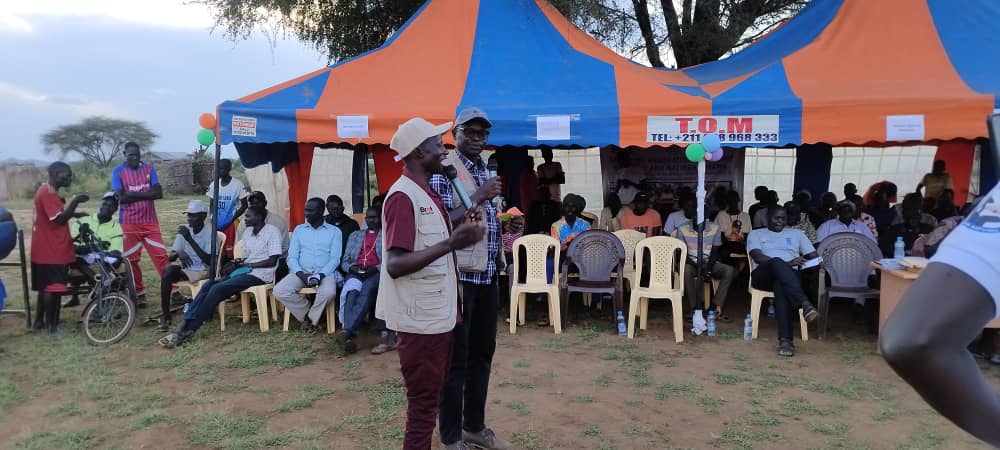
ACROSS is incredibly appreciative of the recipients who really engaged with the training, became economically independent, and are now able to provide for their families. ACROSS is also happy that it was able to support SDGs 13 and 16, which deal with promoting inclusive and peaceful societies for sustainable development, gender equality, and women’s empowerment, and climate action, respectively.

